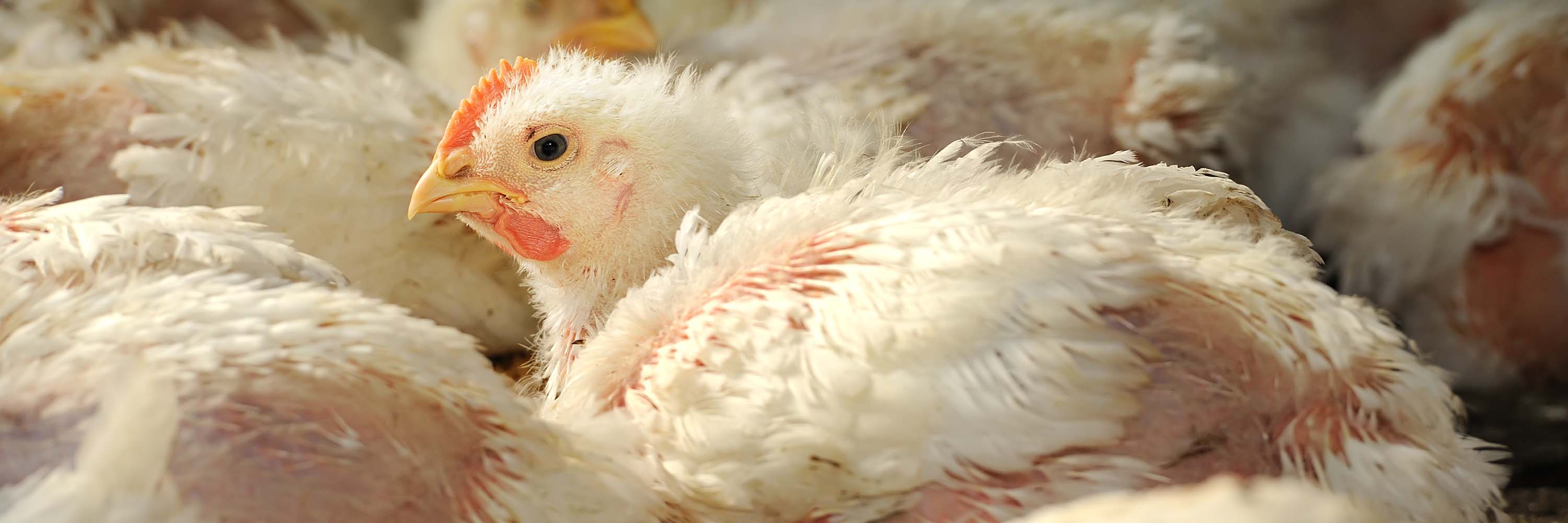
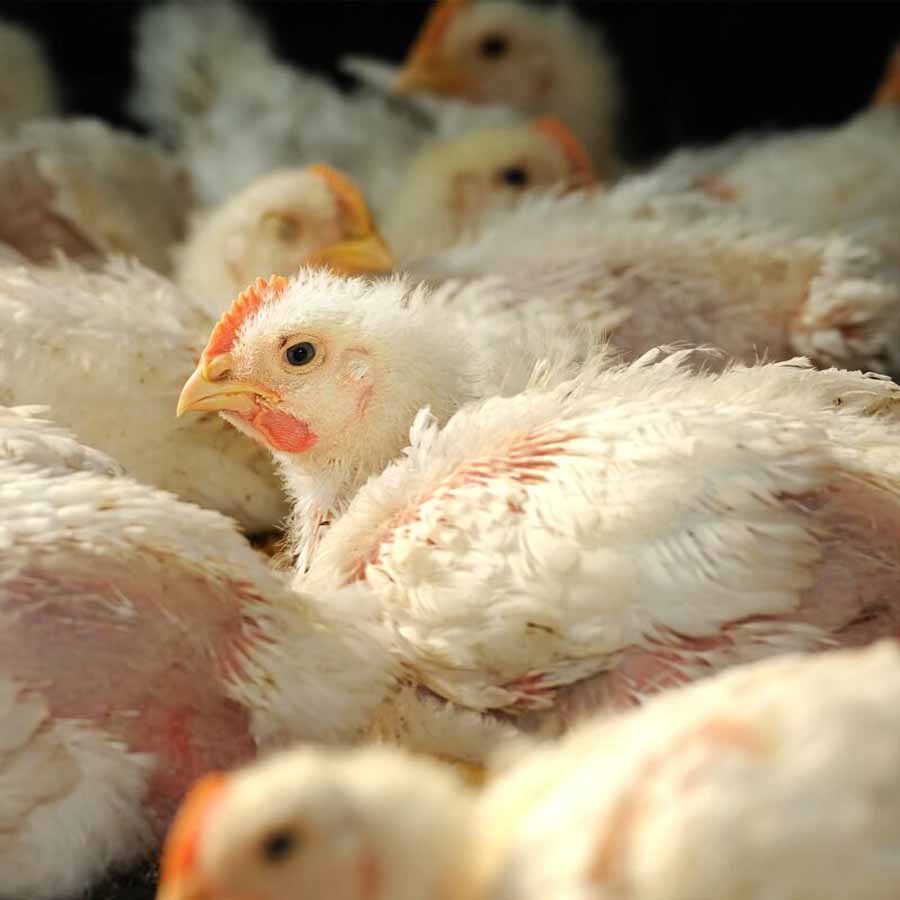
The Life of a Chicken in a Factory Farm
In a hatchery, a chick bred for meat pecks his way out of an egg. He’s surrounded by hundreds of other chirping chicks, calling for their mothers whom they’ll never meet.
Suddenly, the hatching basket is opened. He’s pulled out and roughly tossed onto a conveyor belt. Workers separate the sick, weak, and undesirable chicks, tossing many into garbage cans filled with broken, rotting eggs. Others are thrown into a chute leading to a grinder, where they are ground up alive. This same practice is used by the egg industry, which shreds healthy male chicks alive because they can’t lay eggs.
The workers stack crates full of chicks on top of each other, and some become trapped and crushed between them. Crates with tens of thousands of chicks are loaded onto a large truck and transported to a factory farm.
By now, the chick is getting very hungry and thirsty as the last nutrients remaining from his yolk sac are used up. After arrival at the factory farm, the birds are dumped into a pile, crate by crate.
Welcome to the life of a chicken in the global factory farming industry.
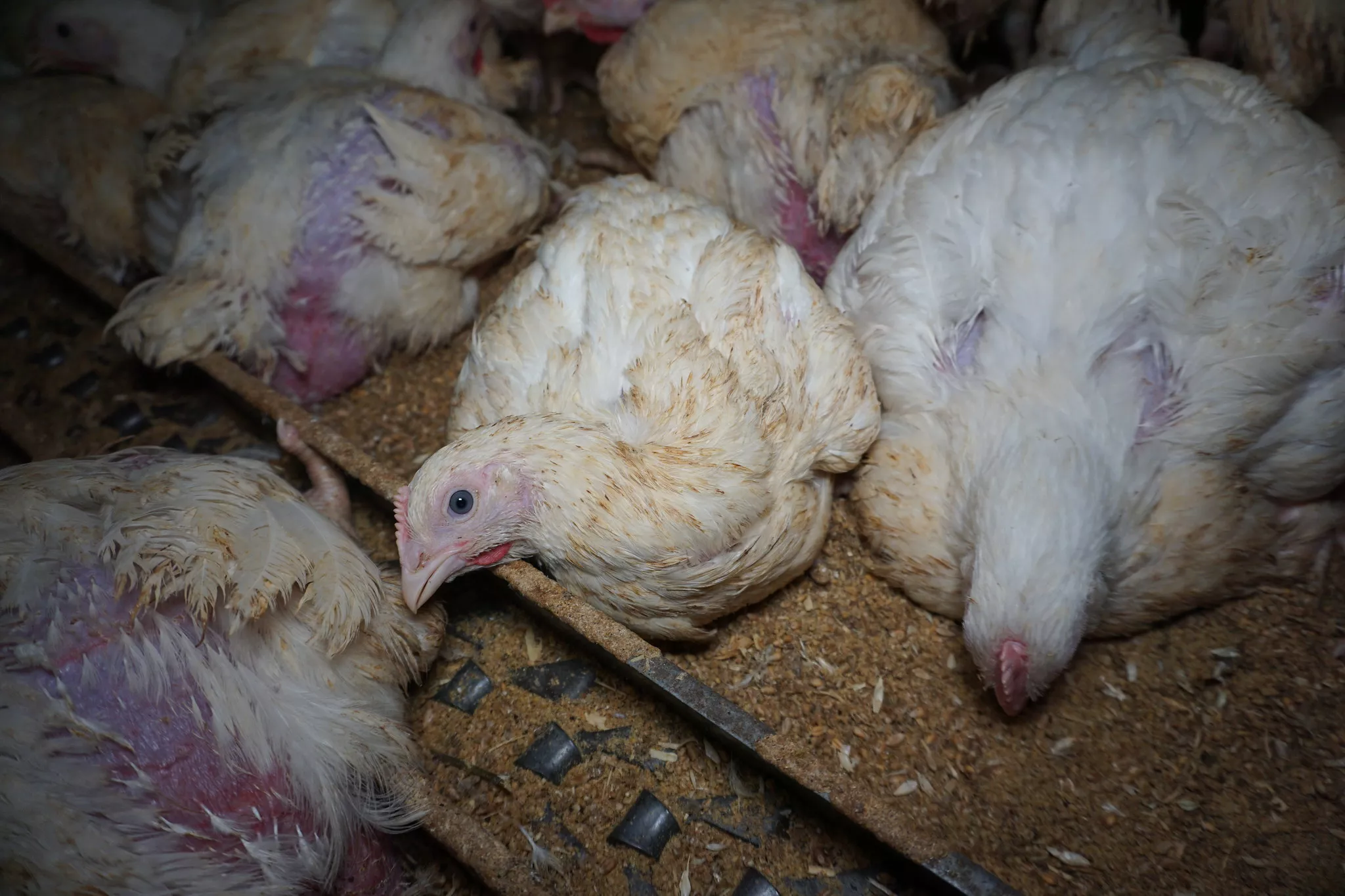
LIFE INSIDE A FACTORY FARM
For seven weeks, the chick will live in a shed. He will never see the sunlight or breathe fresh air. Because he has been bred to gain as much weight as possible, the chick’s bones and heart can’t keep up with his accelerated growth.
During this short timespan, his weight increases from 1.5 ounces to over 9 pounds. This is the equivalent of a human baby growing to more than 600 pounds in 2 months. His legs can’t handle the strain of holding up his body, and it becomes difficult and painful for him to walk. His feet and chest develop open sores that are made worse by the urine and feces building up on the floor.
The shed is never cleaned, so the ammonia in the air burns the chick’s eyes and lungs. Some birds die of heart attacks, infections, or dehydration when they are immobilized by leg fractures.
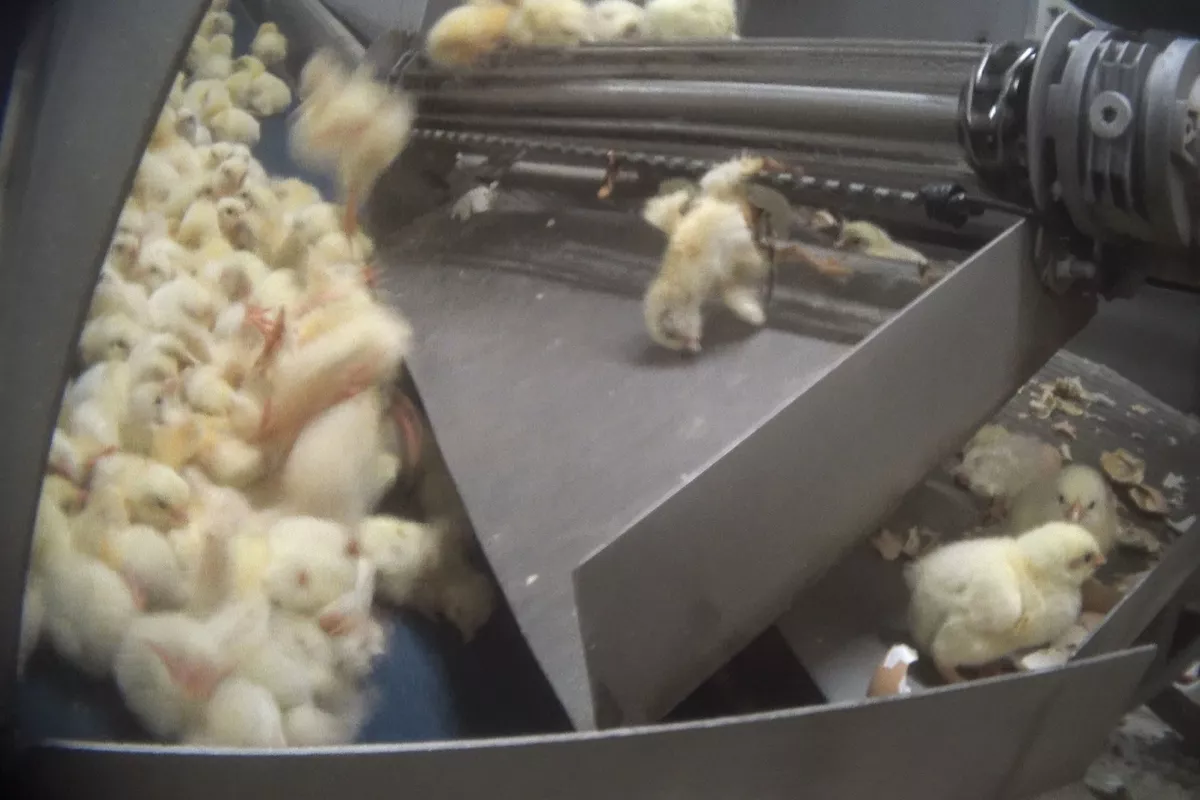
A CHICKEN’S JOURNEY TO THE SLAUGHTERHOUSE
One day, several workers enter the shed. One of them grabs the chicken by his leg and carries him upside down.
The chicken’s wing catches on the opening of the crate, but the worker forces his body through anyway. His wing fractures. He huddles in pain in the corner as bird after bird is loaded into the crate. There’s no room to move.
The chicken is transported in the truck for two days with no food or water. The truck offers no protection from the weather, leaving some chickens to freeze to death.
When the chicken reaches the slaughterhouse, he’s pulled from the crate and roughly shackled upside down by his legs. One of his legs breaks under the impact.
He is passed through a water bath that sends a jolt of electrical current through his body, intending to stun him.
But, for an estimated 90 million chickens in the US, this method of stunning doesn’t work. The fully conscious chicken approaches an automatic rotating blade that cuts his throat.
For the final step of the journey, chickens are submerged in scalding tanks that remove their feathers. Many chickens are still alive as their skin is boiled.
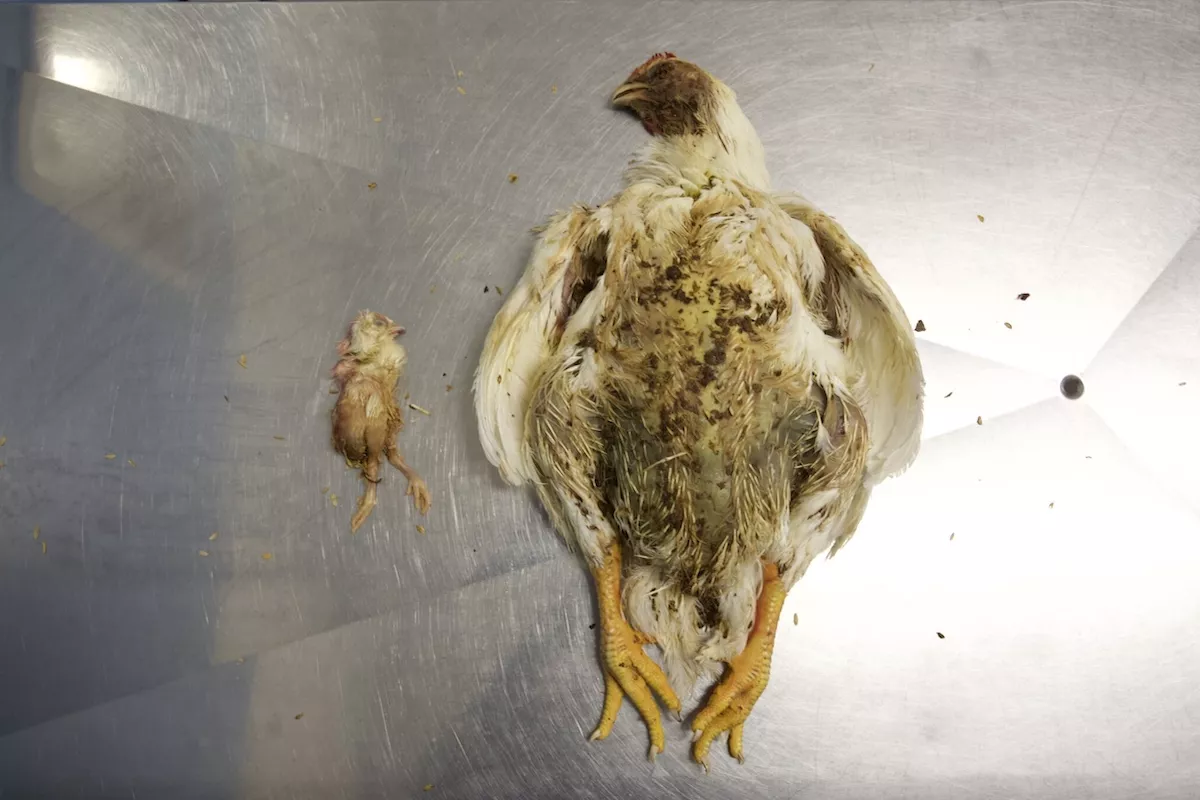
Our Undercover Investigations: Protecting Millions of Chickens From Suffering
HOLDING COMPANIES ACCOUNTABLE
Animal Equality holds companies accountable by exposing cruel production practices firsthand. When investigators entered a California hatchery, they witnessed repeated cruelties and callous handling of chicks. The hatchery was owned by a major supplier to the popular restaurant chain Chick-fil-A.
Our investigators documented numerous violations of the law. Chicks were mutilated or crushed by machinery, many suffered for hours with severe injuries before being killed in mechanical shredders, and others were scalded or drowned when they became trapped in trays that went through washers.
Animal Equality presented evidence of legal violations to the authorities, and we’re demanding that this company be held accountable.
INVESTIGATIONS IN ITALY
Animal Equality has exposed several Italian chicken factory farms over the years. Investigators recorded chickens with difficulties breathing, unable to stand, and with painful leg deformities. Many chickens died before reaching the slaughterhouse
In one particularly powerful investigation, investigators gathered the bodies of several fast-growing chickens and brought them to expert veterinarians. Through x-rays and other medical tests, we’ve shown how fast-growing chicken breeding condemns them to suffering and early death. To end the practice of fast-growing chicken farming, Animal Equality has since filed a complaint with the European Union Commission. The Commission accepted the petition and promised to review the issue of selective chicken breeding.
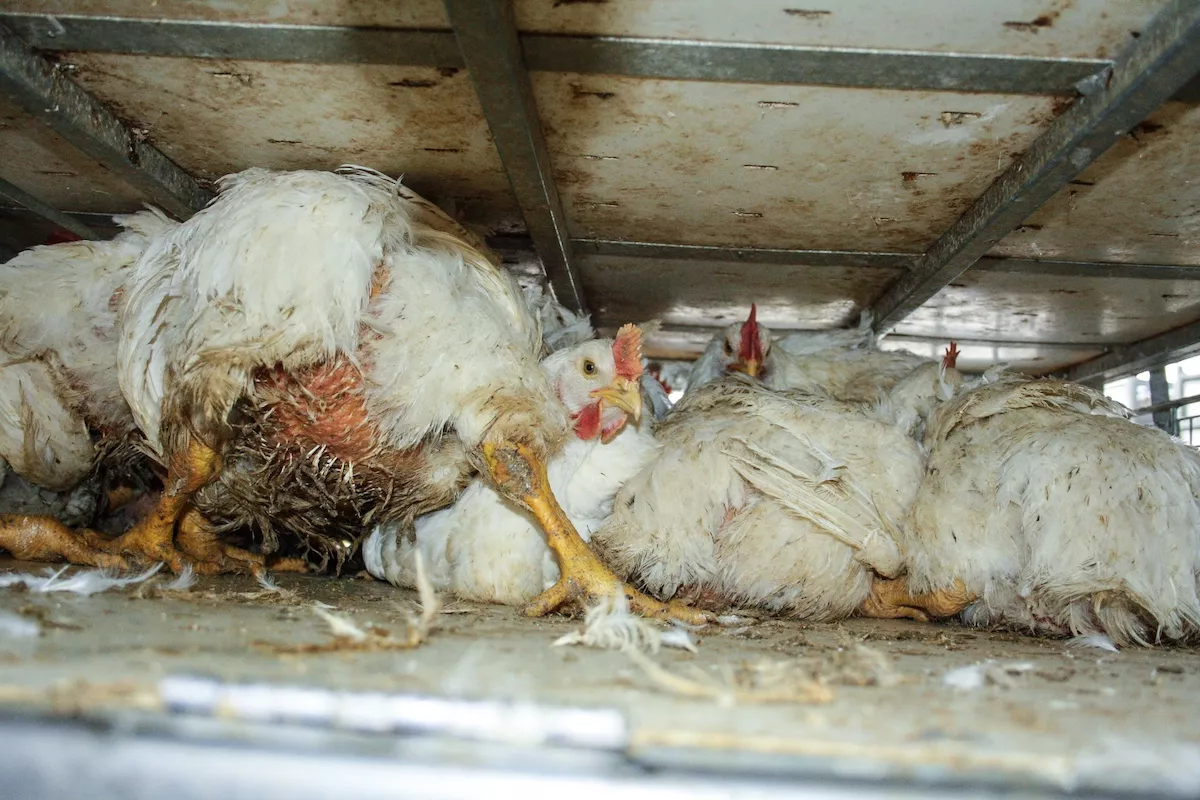
INVESTIGATIONS IN SPAIN
Animal Equality collaborated with Público, a top media outlet in Spain, to release an investigation into a Spanish factory farm. Investigators revealed that many chickens couldn’t stand because of their large, heavy bodies.
Many suffered from painful burns on their skin from urine- and feces-soaked litter. Chickens had no room to move around and were forced to drink from moldy water troughs.
INVESTIGATIONS IN GERMANY
Animal Equality received leaked footage from a German farm that supplied the country’s largest chicken producer, Wiesenhof.
Footage showed workers kicking and shoving birds, subjecting them to inhumane and ineffective killing methods. This included twisting their necks, leaving them writhing in pain for several minutes until they finally died.
Animal Equality filed a complaint with German authorities, demanding criminal charges be brought against the farmers.
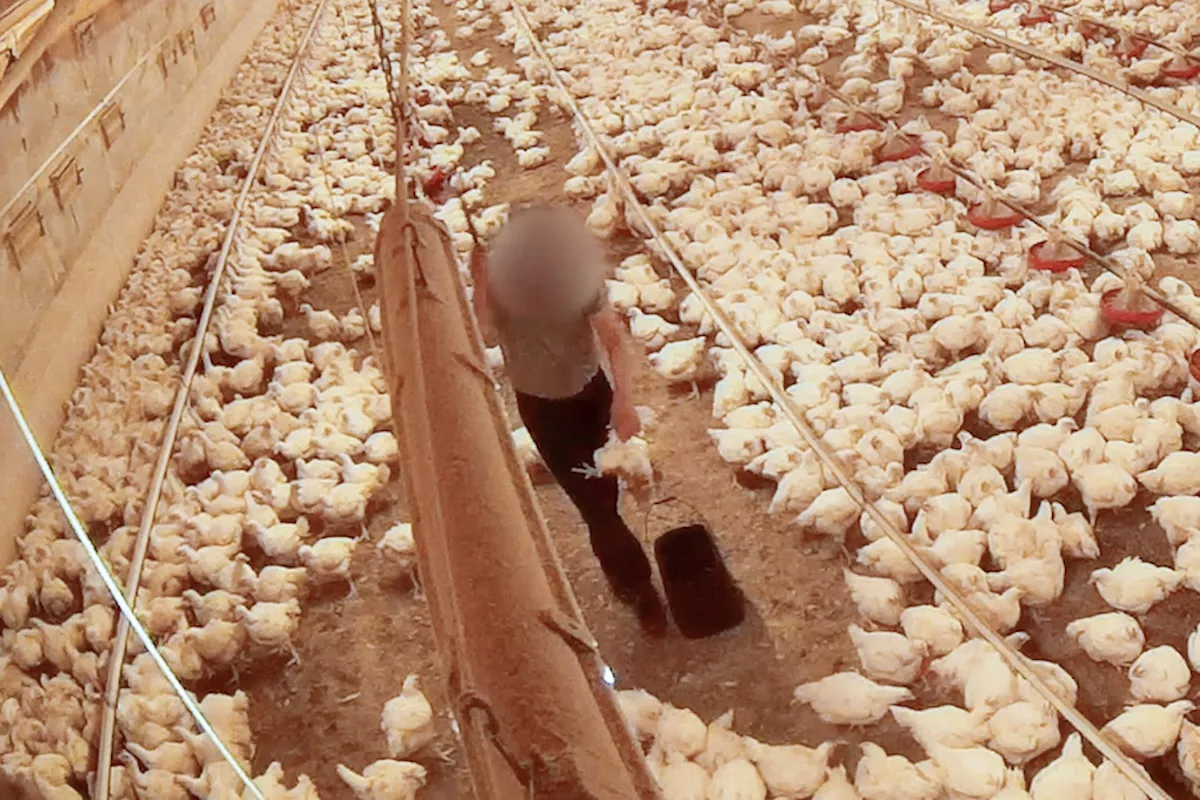
INVESTIGATIONS IN THE U.K.
Animal Equality conducted an investigation on eight U.K. chicken farms, some of which are operated by Moy Park. Moy Park is a supplier of McDonald’s and Tesco, one of the largest supermarket chains in the U.K.
On the farms, water troughs were raised too high for the smaller and weaker birds to reach. They suffered from painful burns on urine-soaked floors and died in agony when workers slowly crushed their necks.
Following a whistleblower report, Animal Equality investigated three Red Tractor-certified farms in the U.K. All were owned by Moy Park.
The investigation revealed dozens of birds collapsed under the weight of their unnaturally large bodies. Dead birds were left to rot among the living, and desperate chickens ate other birds.
Workers kicked and stepped on the chickens, while some broke birds’ necks and left them to convulse. Dying birds were thrown onto piles of carcasses and left to suffer for hours.
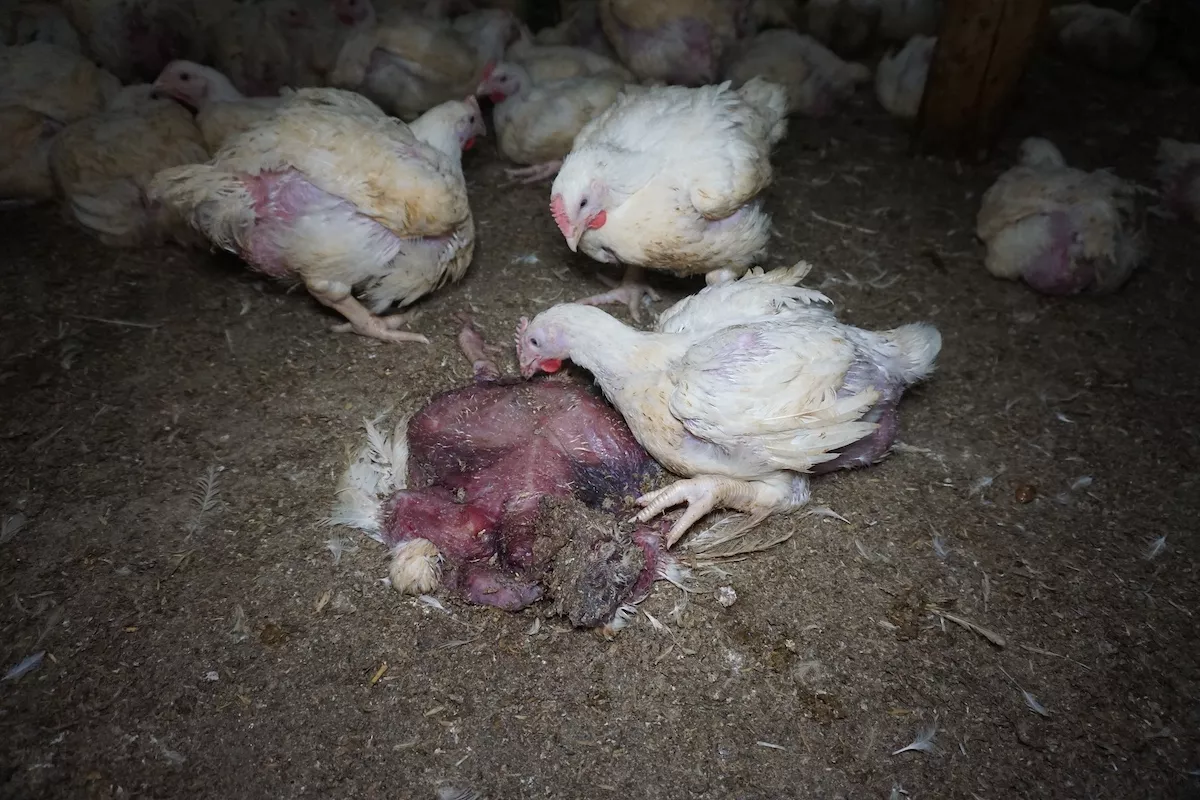
INVESTIGATIONS IN INDIA
In India’s major chicken-producing states, Animal Equality found violations of the most basic animal welfare and food safety standards.
Birds were transported to slaughter for days without access to food or water. When they arrived at meat markets, they were held in packed crates for hours to days and developed painful infections. At slaughter, chickens suffered for several minutes before dying. Their bodies were de-feathered and processed in filthy conditions.
Animal Equality has asked the Indian government to outlaw the slaughter of chickens at meat markets and enforce animal protection laws.
What You Can Do
While cruelty has been found in all corners of the global meat industry, grocery shoppers and diners are saying “enough” to meat, dairy, and eggs.
It certainly doesn’t hurt that tasty, filling, and feel-good recipes increasingly feature plant-based foods. From a plant-based chicken parmesan to compassionate buffalo wing alternatives, the options are endless.
For those who need an extra dose of inspiration on their plant-based journeys, Love Veg is the perfect beginner’s companion. With free resources and tips, you’ll open up a whole new world of culinary possibilities.
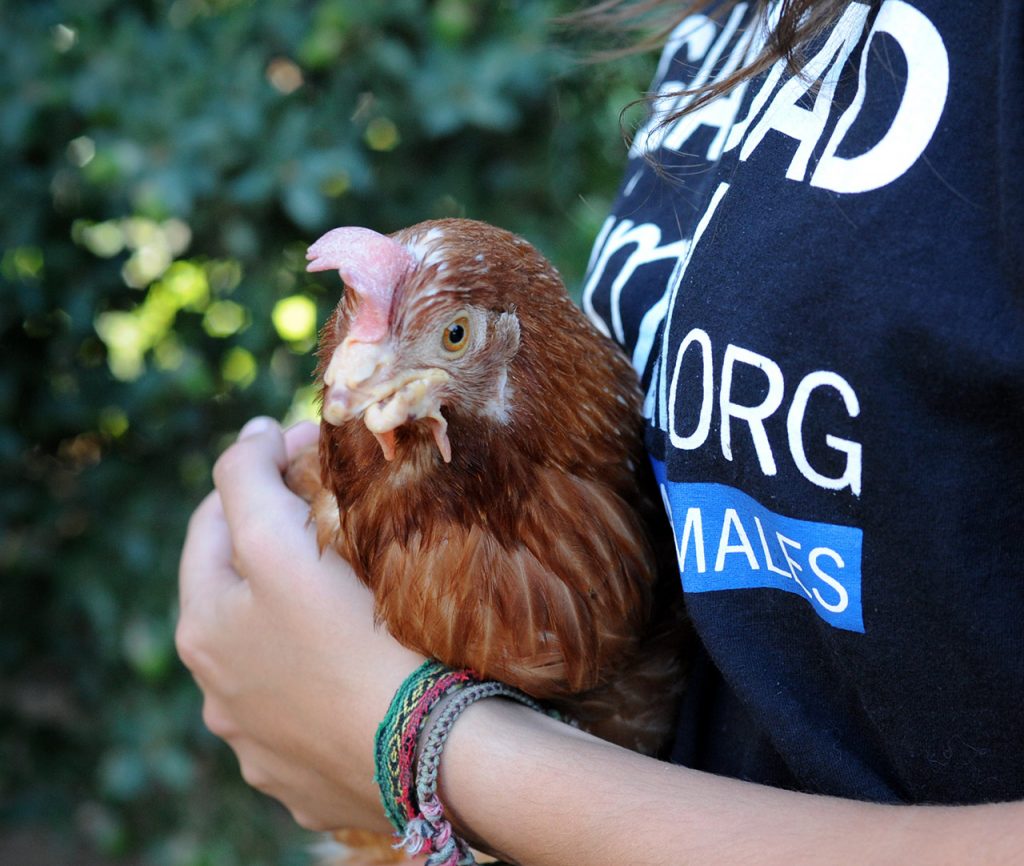
LIVE KINDLY
With rich emotional lives and unbreakable family bonds, farmed animals deserve to be protected.
You can build a kinder world by replacing animal food products with plant‑based ones.

